Discover SwaSwara In Gokarna: A Sustainable Retreat For Luxury Wellness Seekers
At SwaSwara, time slows to the sound of the conch as luxury finds meaning in solitude by the sea
By the edge of the Arabian Sea, where the Western Ghats tumble into ochre cliffs and waves muffle digital noise, lies a retreat that’s less about vacationing and more about listening—to birdsong, to wind through palms, to the rhythm of breath. SwaSwara, in Gokarna, Karnataka, isn’t easy to categorise. It’s not quite a spa, not exactly a resort. It’s a place where time slows to the beat of a conch shell and luxury redefines itself through solitude.
The name—SwaSwara, or “one’s inner voice”—hints at its philosophy. Nestled just off Om Beach, away from the revelry of nearby Goa, this retreat invites guests not to escape life but to tune into it more deeply. Here, luxury doesn’t shout. It murmurs through red laterite walls, barefoot walks on dewy grass, and the gentle discipline of daily rituals.
“SwaSwara was never intended to be a conventional getaway,” says General Manager Devadautta Naik. “It’s more of a curated environment where guests can reconnect—with themselves, with nature, with silence. We don’t offer distraction. We offer depth.”
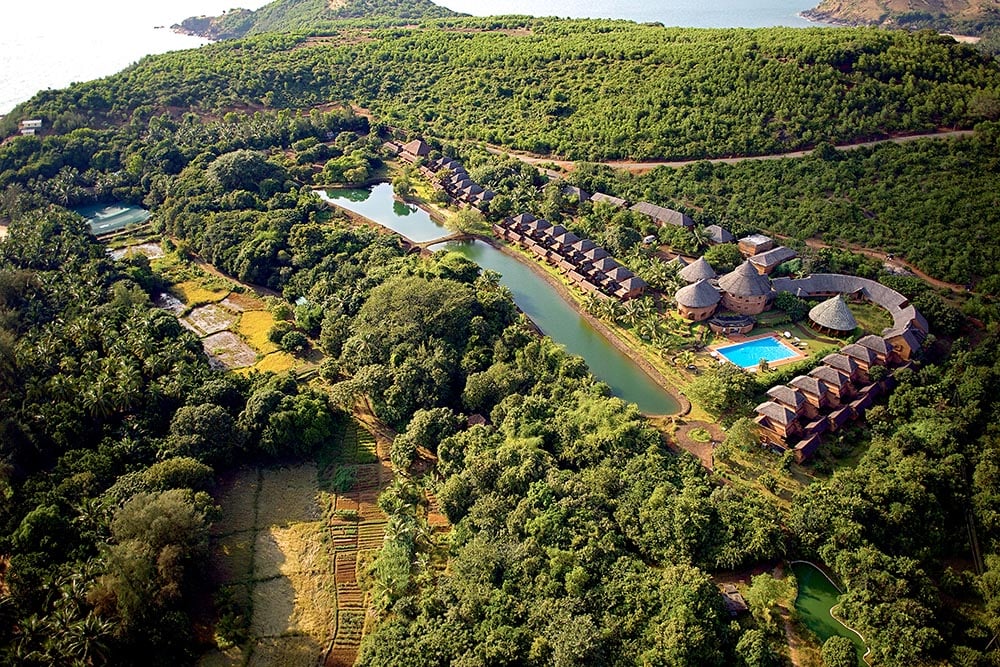
The Geography Of Stillness
Gokarna, once a pilgrimage town known for its Mahabaleshwar temple, has slowly evolved into a refuge for the contemplative traveler. While the nearby beaches draw a smattering of backpackers, much of the town still feels rooted in tradition—stone sanctums, temple bells, narrow lanes flanked by banana trees.
SwaSwara occupies a 26-acre stretch above Om Beach, though its footprint on the land is light. Earth-toned villas made from laterite and clay tiles are interspersed with organic gardens and forest trails. There are no televisions. Wi-Fi is intentionally sparse. The idea isn’t to disconnect from the world entirely but to connect more meaningfully—with breath, with sky, with self.
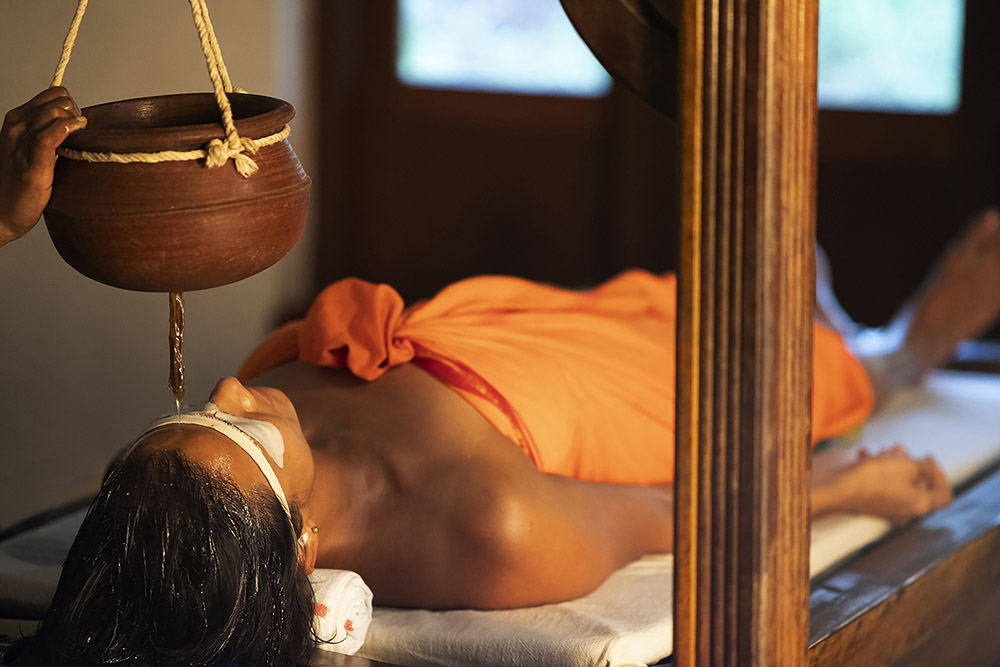
A Different Kind Of Itinerary
Forget the checklist of activities. At SwaSwara, days unfold around a loose rhythm of yoga, meditation, nature walks, and nourishing meals. There are no wake-up calls or tour buses. And yet, guests often leave having accomplished something they didn’t know they needed: rest that goes beyond sleep, healing that transcends the body.
Mornings may begin with yoga under a soaring thatched dome, where the open-air pavilion welcomes both breeze and birdsong. Each session is tailored to guests’ needs—whether they’re recovering from burnout, illness, or simply seeking space.
“Most of our guests are not here to tick boxes,” Naik explains. “They come during transitions—post-burnout, post-retirement, or after a major life event. What we offer is a space that holds that shift.”
Meditation, often practiced at dusk or dawn, invites stillness rather than performance. Guests can join in or opt out without judgment. Autonomy is the point.
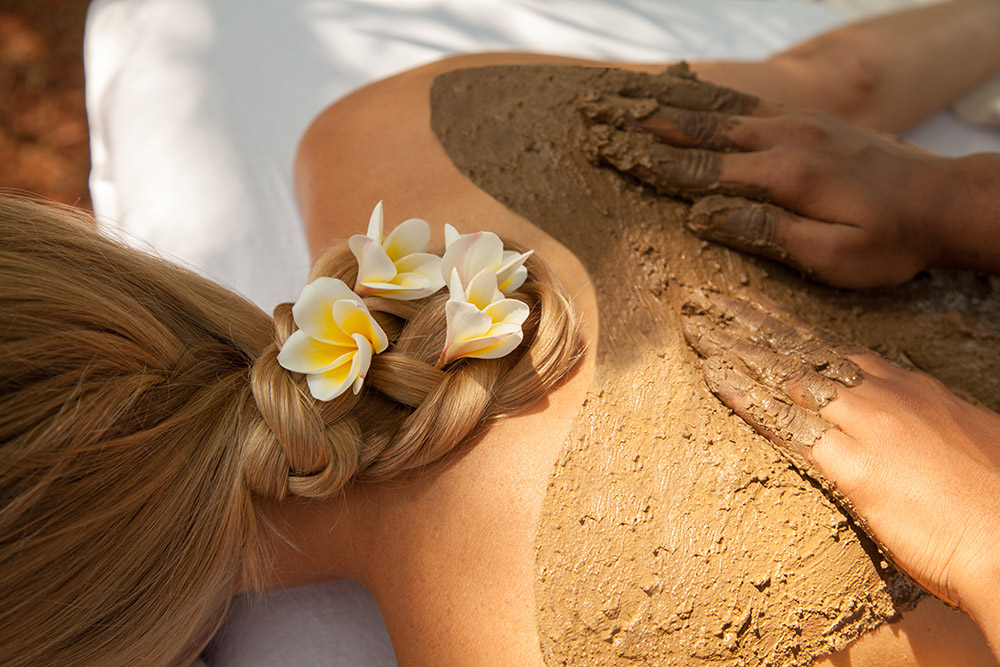
Nourishment From Soil To Soul
Food at SwaSwara is seasonal, organic, and strictly vegetarian, but never austere. Most of the ingredients—amaranth, ash gourd, basil, jackfruit—are grown on-site. Ayurvedic principles guide the cooking, but the meals are deeply flavorful, plated artistically, and designed to support healing.
Breakfast and lunch are served in silence, allowing guests to focus on taste and texture. No menus. No choices. “The idea,” says Naik, “is to free the mind even from the burden of selection. When you don’t have to decide what to eat, you start observing how you eat.”
There is no coffee or alcohol. Instead, herbal teas, fresh juices, and spiced buttermilk are offered. Dinner is communal, served under an open sky or in the rustic dining hall, where strangers often find themselves in quiet, deep conversation.
Healing As A Gentle Practice
Yoga and meditation are central, but SwaSwara also offers traditional Ayurvedic therapies—warm oil massages, detox plans, steam baths, and shirodhara treatments. The approach, however, is gentle rather than doctrinaire.
“We don’t believe in imposing wellness,” Naik says. “If someone just wants to walk, swim, read, and rest—that’s equally valid. Healing comes in different forms for different people.”
There’s also an art studio, stocked with natural pigments and recycled materials. Many guests explore free-form creativity for the first time here, making collages, painting with earth, or molding clay. It’s less about the output, more about the process—another way to silence the noise.
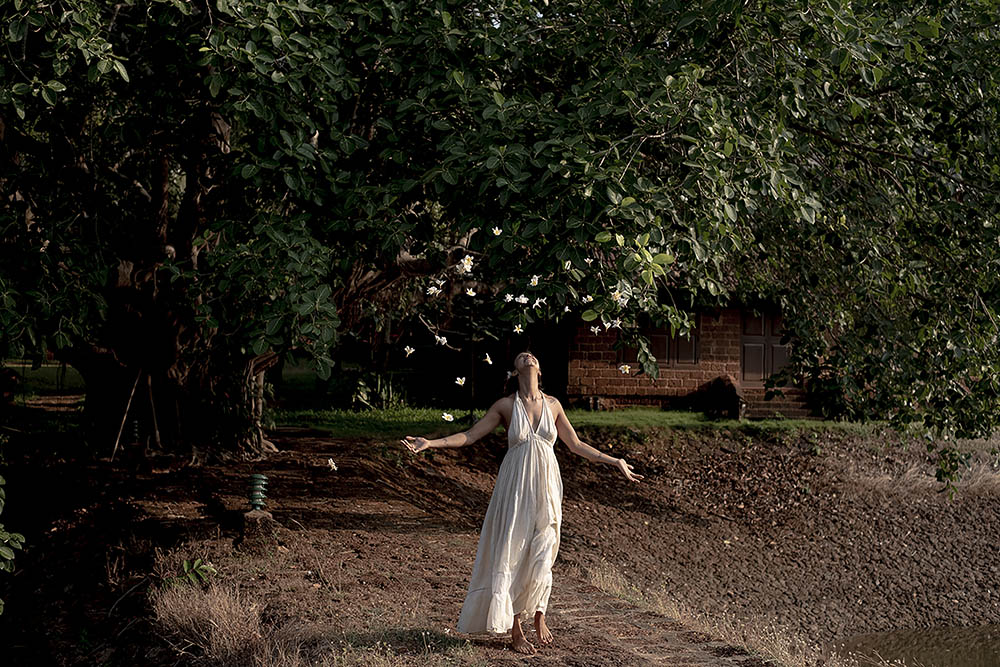
Uncurated Encounters With Nature
Perhaps the most luxurious offering at SwaSwara is access to wildness. The retreat’s trails wind through acacia groves and medicinal plants. Guests often spot peacocks and hornbills. Rainwater ponds brim with lotus and frogs. There are no manicured gardens, just natural ecosystems encouraged to flourish.
Guided hikes lead to secret beaches or clifftop viewpoints. Forest bathing walks invite guests to tune into rustling leaves, sun on skin, the smell of sap. Om Beach is a short stroll away, offering unfiltered encounters with local life. Fishermen haul in nets. Children play cricket in the sand. Stray dogs nap under fishing boats. At sunset, the beach becomes an amphitheatre of silhouettes and light.
Who Comes Here And Why
The people who come to SwaSwara don’t arrive for nightlife or pampering. They come for pauses—between jobs, marriages, cities, or phases of life. Solo travelers abound. So do couples on anniversary retreats, artists on sabbaticals, and executives on burnout breaks.
Some guests stay for just three days. Others for three weeks. And a few return annually to recalibrate. Naik recounts the story of a guest who returned every year for a decade. “She never used the spa. She just painted, walked, meditated, and watched the sea. This was her quiet rebellion against the speed of modern life.”
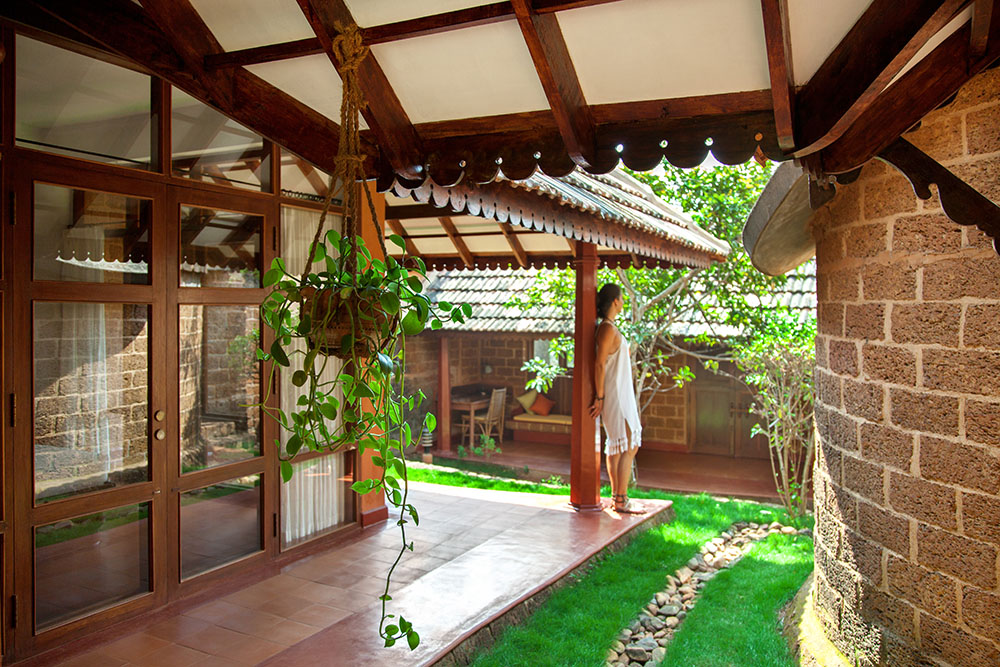
A New Kind Of Luxury
In an age of excess, SwaSwara offers the rarest luxury: slowness. There are no designer frills, but there is comfort. There is space. There is breath. Everything is deliberate: the clay roof tiles that cool the villas naturally, the gentle rhythm of daily routines, the invitation to be fully present.
“Luxury, to us,” Naik reflects, “is not about what we add, but what we take away. Noise, urgency, choice fatigue—when those go, what’s left is peace. That’s the true indulgence.”
Address: SwaSwara, Om Beach, Gokarna, Uttar Kannada District, Karnataka – 581326
Tariff: 5-day stay for one person with two treatments: INR 2.25 lakh